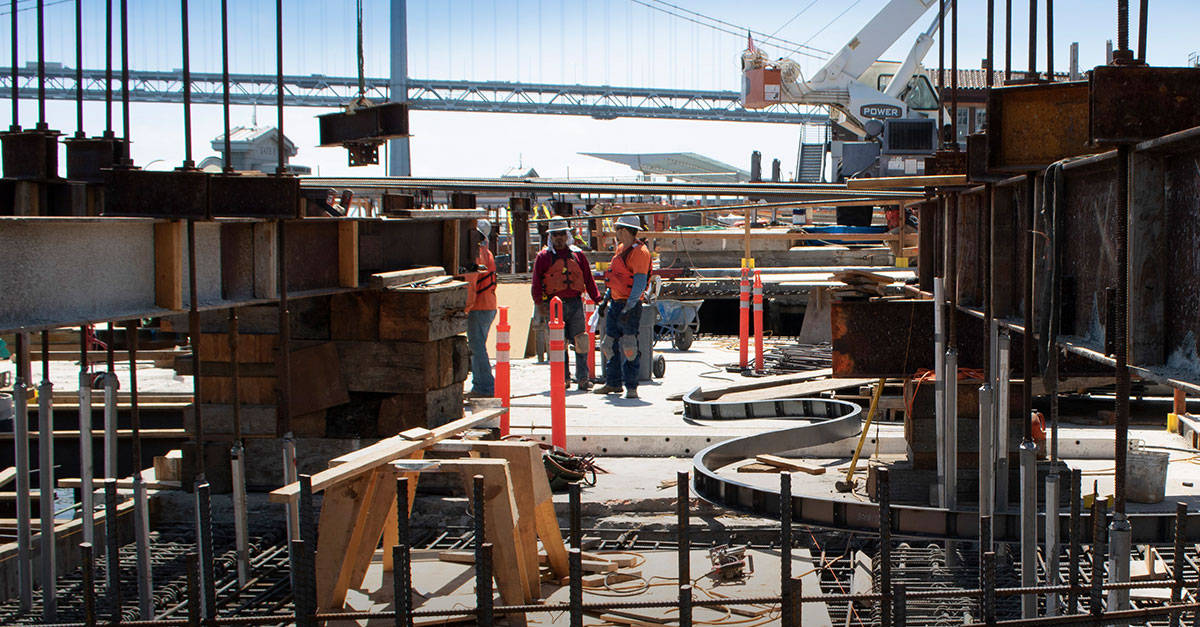Field Management for Construction: Coordination and Communication On-Site
 Field management is a fancy term for coordinating and communicating what’s happening on-site on a construction project. It’s herding the figurative cats of various shapes and sizes, aligning people and things to build stuff — amazing stuff like the Empire State Building, the Walt Disney Concert Hall, and 30 St Mary Axe, AKA “The Gherkin.”
Field management is a fancy term for coordinating and communicating what’s happening on-site on a construction project. It’s herding the figurative cats of various shapes and sizes, aligning people and things to build stuff — amazing stuff like the Empire State Building, the Walt Disney Concert Hall, and 30 St Mary Axe, AKA “The Gherkin.”
Field management for construction projects is what Fieldwire is all about.
Field management vs. field service management
Field management is the management of activities on-site (i.e., on a construction site). Field service management refers to the management of a (non-construction) company’s off-site activities, typically those related to installs, service, and repairs — like HVAC techs going out to a residence to fix a busted furnace. Field service management includes managing work orders, scheduling, dispatching, and resourcing.
How to do field management right
To reiterate, field management is the communication and coordination that happens on-site — in the field. (Ever wonder why it’s called “Fieldwire?”) In the bad old days, this involved a lot of pieces of paper, phone calls, and long walks to and from the field office — or farther. It also meant a lot of miscommunications and delays, not to mention mistakes, conflicts, and rework.
Luckily, you live in a time of smartphones and widespread connectivity, both of which have greatly improved the efficacy of field management. Even better, there are digital platforms like Fieldwire that are specifically designed to streamline field management, making that communication and coordination stuff second-nature.
Field management and Fieldwire work the same way:
- assign work
- track and report progress
- follow up as needed
Field management challenges
The challenges of field management can be solved with a few techy tricks, namely:
Lack of information
RFIs are a pain, but asking clarifying questions shouldn’t be. Fieldwire makes addressing errors and omissions in plans as easy as tagging someone on Twitter — it’s the same mechanism and way quicker than @ing someone with a Tweet.
Changes to plans
Insofar as updates to drawings, Fieldwire clearly shows differences in real-time with versioning control to make sure everyone’s on the same page.
Conflict resolution
No, not breaking up fistfights on-site — at least not typically — but resolving issues that occur when an HVAC fan is drawn to extend from the ceiling directly into a lighting grid, for example. With digital plans, conflicts like these are apparent and can be addressed before crews reach the site.
Site conditions
OK, so field management can’t fix the weather or convince rabid moose herds to rampage another day. But Fieldwire can document unforeseen circumstances that limit or stop work, so your reports will include context.
Benefits of field management
Besides solving for most, if not all, of the challenges of getting a building project off the ground, effective field management can make your life easier by:
- saving you time
- saving your company money
- limiting everyone’s risk — the risk of rework and the risk of liability in the off-off-chance everything doesn’t go exactly as planned
Ready to try field management? Check out Fieldwire, the construction management platform for the field.

 Matt Schneiderman •
Matt Schneiderman • 
















